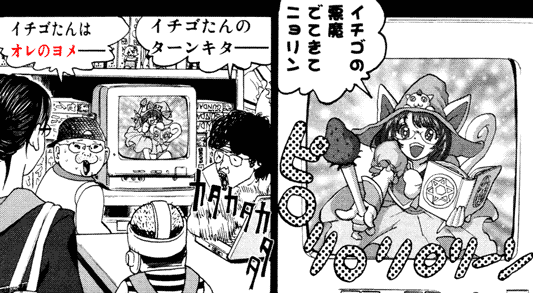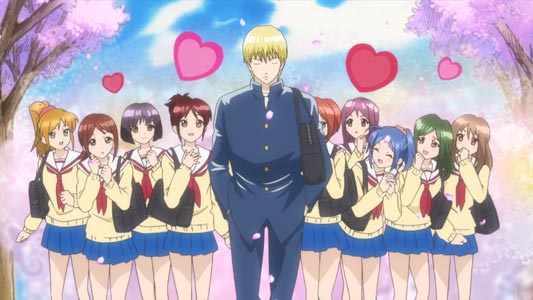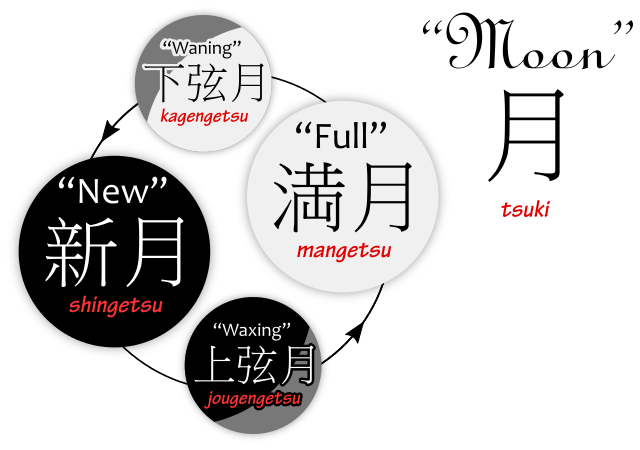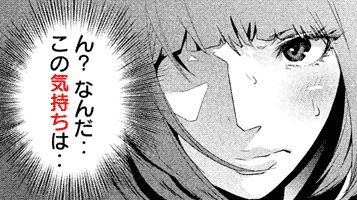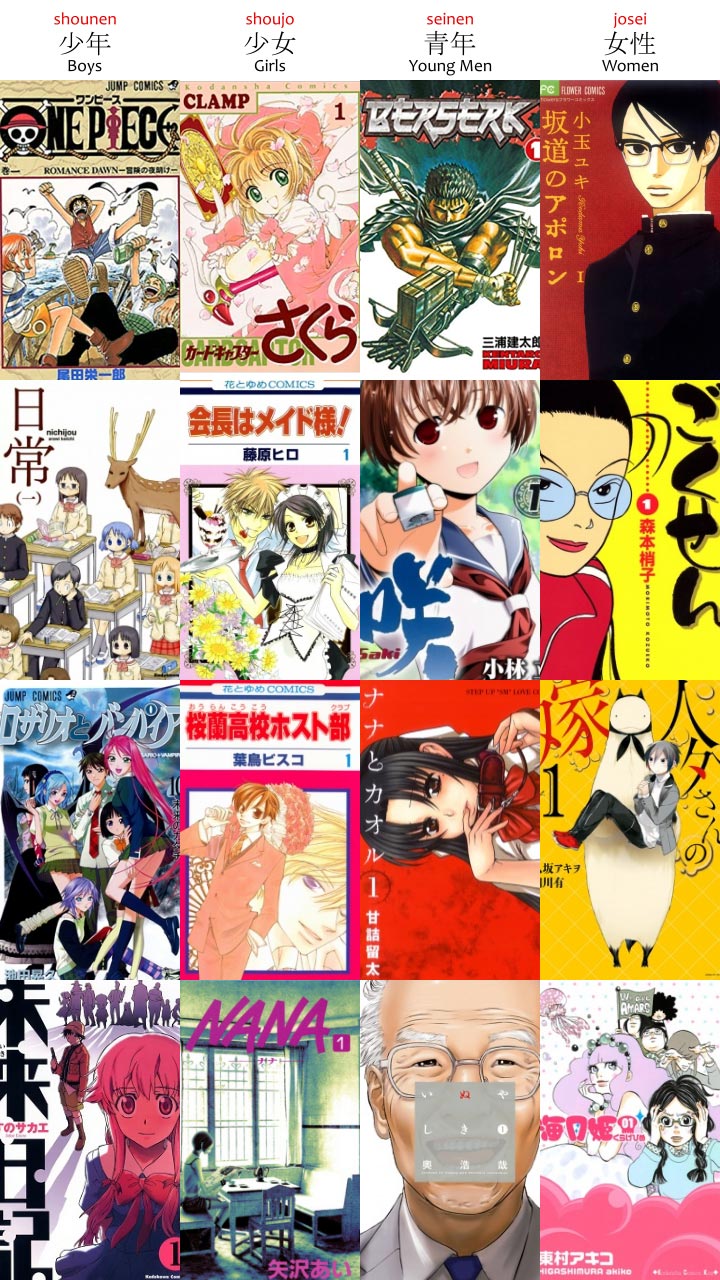otaku オタク
In Japanese, otaku オタク means a hardcore "anime fan," or, more generally, a "nerd," a "hobbyist." It's abbreviated ota オタ. Sometimes, otaku お宅 means "your house" instead, and may also mean "you," used as a second person pronoun.
moteru モテる
In Japanese, moteru モテる means "to be popular," in the sense of a guy being popular with girls, or of a girl being popular with guys. Being romantically popular. Like a bishoujo 美少女, with thousands of admirers, love letters, a boyfriend, and so on.
Not to be confused with: the homonym moteru 持てる, which means "to have" or "to hold" something; or with ninki 人気, which means "popular" in the general sense.
ikemen
In Japanese, ikemen イケメン means "hot guy," "handsome," "cool guy," as in a "pretty" guy, an "attractive" guy. It's a slang. Similar words include bishounen 美少年, "beautiful boy," and binan 美男, "beautiful man."
Anime: Masamune-kun no Revenge, 政宗くんのリベンジ (Episode 1)
bishoujo 美少女
Anime: Saiki Kusuo no Psi-nan 斉木楠雄のΨ難
Body Parts
Let's start with the word for "body" in Japanese: karada 体. It's often read tai 体 when it's part of another word, e.g. tainai 体内, "inside of the body.
"Body" in Japanese
There are various ways to say "body" in Japanese. A physical body is karada 体, or karada 身体, but the word mi 身 is used in some cases. The morpheme tai 体 is used to refer to aspects of the body. And words like nobody, somebody, anybody, everybody are formed with dare 誰 plus some particle.
This article is about the word for whole "body." See Names of Body Parts in Japanese for a list of terms for specific parts.
Moon Phases in Japanese
The terms for the "moon phases" in Japanese, gessou 月相, would be:
| English | Romaji | Kanji |
|---|---|---|
| New Moon | shingetsu | 親月 |
| Waxing crescent Moon | jougengetsu | 上弦月 |
| Full Moon | mangetsu | 満月 |
| Waning crescent Moon | kagentsu | 下弦月 |
The word for "Moon" in Japanese is tsuki 月, e.g. tsuki ga kirei 月がきれい, "the Moon is pretty." This word is the kun'yomi 訓読み of the kanji, getsu is the on'yomi 音読み.
omake おまけ
kimochi 気持ち
shounen, shoujo, seinen, josei 少年, 少女, 青年, 女性
What's a shounen manga? A shounen anime, or even just "a shounen"? What's the difference between shounen, shoujo, seinen, and josei? What's the meaning of these words in Japanese?
They are demographics: shounen 少年, "boys," shoujo 少女, "girls," seinen 青年, "young men," and josei 女性, "women." A shounen anime is so-called because it adapts a shounen manga, which is so-called because it's serialized in a shounen magazine, which is so-called because it targets a "boys" demographic, its primary audience are underage boys, it's marketed toward them.
By the way, "a shounen protagonist" is the protagonist "of" a shounen manga/anime, not a protagonist who "is" a shounen, i.e. not a boy protagonist, a protagonist of a series for boys.
Note: not to be confused with shounen-ai and shoujo-ai, which, in English, refers to gay and lesbian genres of manga and anime.
Oniichan, Oneechan, Otouto, Imouto
Animals in Japanese - Vocabulary
~dono ~殿 (Honorific Suffix)
In Japanese, ~dono ~殿 after someone's name is a honorific suffix used in formal letters, and in historical anime about samurais, or by anachronistic characters, or by otaku オタク characters.
Not to be confused by the interrogative pronoun dono どの, "which."
yobisute 呼び捨て
For example, if there's someone called Tarou 太郎, people normally call him: Tarou-san 太郎さん, with the san さん honorific. If you call him by just his name, Tarou 太郎, then that's yobisute.
